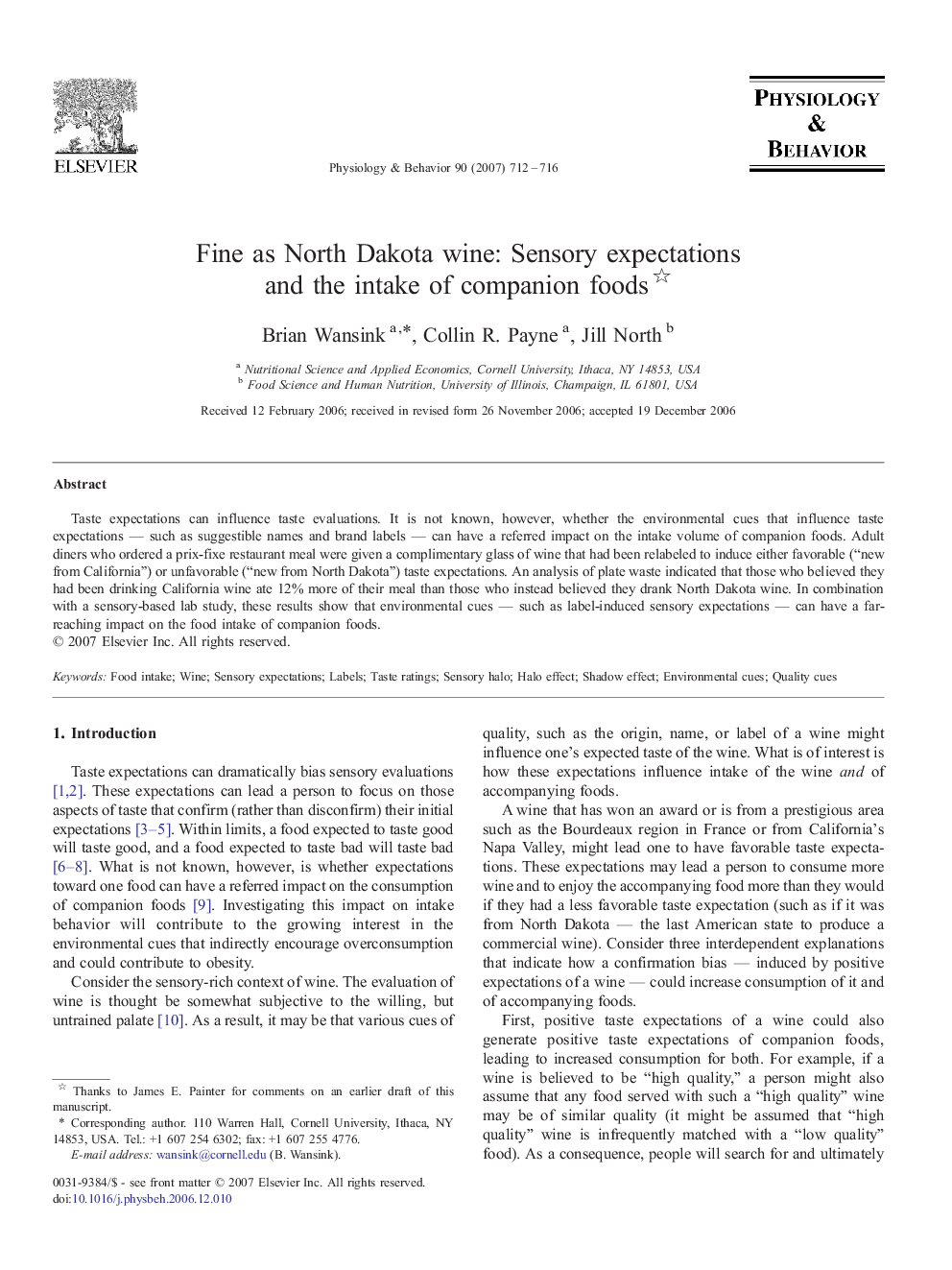| Article ID | Journal | Published Year | Pages | File Type |
|---|---|---|---|---|
| 2845871 | Physiology & Behavior | 2007 | 5 Pages |
Taste expectations can influence taste evaluations. It is not known, however, whether the environmental cues that influence taste expectations — such as suggestible names and brand labels — can have a referred impact on the intake volume of companion foods. Adult diners who ordered a prix-fixe restaurant meal were given a complimentary glass of wine that had been relabeled to induce either favorable (“new from California”) or unfavorable (“new from North Dakota”) taste expectations. An analysis of plate waste indicated that those who believed they had been drinking California wine ate 12% more of their meal than those who instead believed they drank North Dakota wine. In combination with a sensory-based lab study, these results show that environmental cues — such as label-induced sensory expectations — can have a far-reaching impact on the food intake of companion foods.
